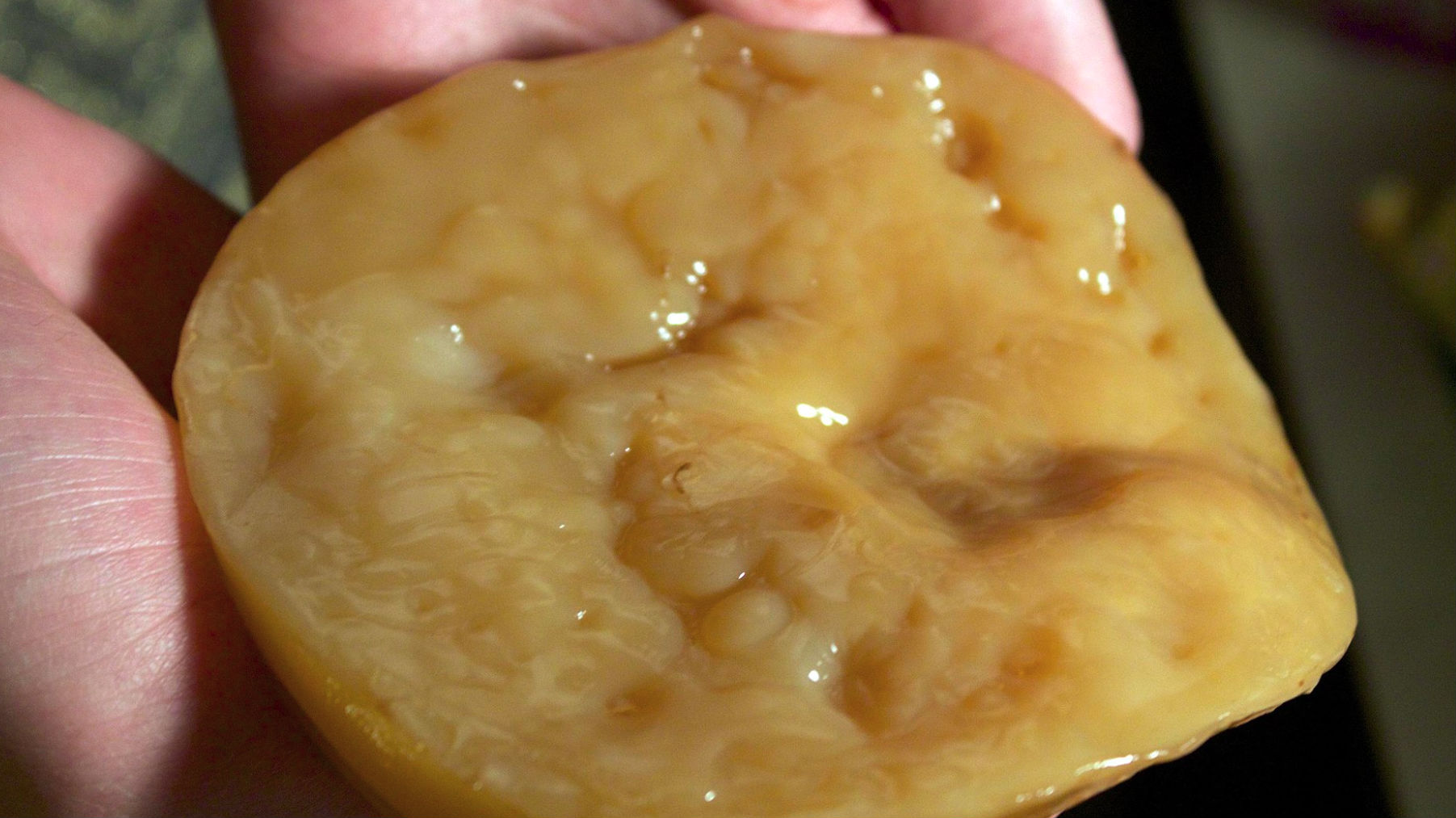What is a scoby?
Scoby is flying off the shelves as fermented drinks gain popularity in Europe

A free daily email with the biggest news stories of the day – and the best features from TheWeek.com
You are now subscribed
Your newsletter sign-up was successful
A gooey, blob-like substance called scoby has gone on sale in UK high streets for the first time.
This “alien looking” blob is “more like something seen in a science laboratory than a kitchen”, but demand for it has gone up 56% since it went on sale at Lakeland shops three weeks ago, says The Daily Telegraph.
So what is it?
The Week
Escape your echo chamber. Get the facts behind the news, plus analysis from multiple perspectives.

Sign up for The Week's Free Newsletters
From our morning news briefing to a weekly Good News Newsletter, get the best of The Week delivered directly to your inbox.
From our morning news briefing to a weekly Good News Newsletter, get the best of The Week delivered directly to your inbox.
Scoby is an acronym for symbiotic culture of bacteria and yeast. It is, the Telegraph reports, “the crucial ingredient for a sour-tasting tea drink, kombucha, one of the fermented food and drinks taking Britain by storm”.
The newspaper explains that the drink is made by “mixing tea with sugar, adding the Scoby in a sealed jar, and allowing it to ferment in a warm environment”.
The scoby’s bacteria and yeast convert the sugar into ethanol and acetic acid, which keeps out harmful bugs and gives the kombucha its sour taste.
“Think of the scoby as the coral reef of the bacteria and yeast world,” advises recipe site The Kitchn. “It is a rubbery raft that floats on the surface of the kombucha.”
A free daily email with the biggest news stories of the day – and the best features from TheWeek.com
Why is Kombucha so popular?
Kombucha originated in the Far East in around 200 BC, and was known as the “Tea of Immortality”, says the Telegraph. More recently, it gained popularity in California and the US, before being embraced by East London’s hipsters and health-conscious consumers.
Now, pubs such as Wetherspoon’s are including it on their menus, while Waitrose reported a 40% increase in sales within a year.
The latest Inkwood Research report forecasts the kombucha market in Europe will grow from £140m in 2016 to a value of £1.1bn by 2025. And as national markets have picked up on the demand for DIY kombucha, scoby sales are also increasing.
Is it good for you?
“I believe kombucha is good for you but I can’t scientifically prove it,” says Professor Tim Spector, genetic epidemiologist and author of The Diet Myth. “Lots of research has been done on the effects of the microbes on mice but not on humans.”
The Mayo Clinic says that while proponents claim that kombucha tea helps prevent and manage serious health conditions, “these claims are not backed by science.”
“There’s a lot of hype,” Maria Marco, professor of food science and technology at the University of California, told The Guardian. “There are some general properties of these foods that could conceivably have an impact on our body, and perhaps help the immune system, but they’re not drugs. It’s ridiculous to think that they could treat diseases like cancer.”
Currently, the only health benefit recognised for kombucha by the European Food Safety Authority is for people who are lactose-intolerant, as the bacteria break down the lactose in milk as part of the fermentation process.
“Valid medical studies of kombucha tea’s role in human health are very limited - and there are risks to consider,” says the Mayo Clinic, noting reports of stomach upsets, infections and allergic reactions in kombucha drinkers. “In short, there isn’t enough evidence that kombucha tea delivers on its health claims.”
-
 ‘This is something that happens all too often’
‘This is something that happens all too often’Instant Opinion Opinion, comment and editorials of the day
-
 House votes to end Trump’s Canada tariffs
House votes to end Trump’s Canada tariffsSpeed Read Six Republicans joined with Democrats to repeal the president’s tariffs
-
 Bondi, Democrats clash over Epstein in hearing
Bondi, Democrats clash over Epstein in hearingSpeed Read Attorney General Pam Bondi ignored survivors of convicted sex offender Jeffrey Epstein and demanded that Democrats apologize to Trump